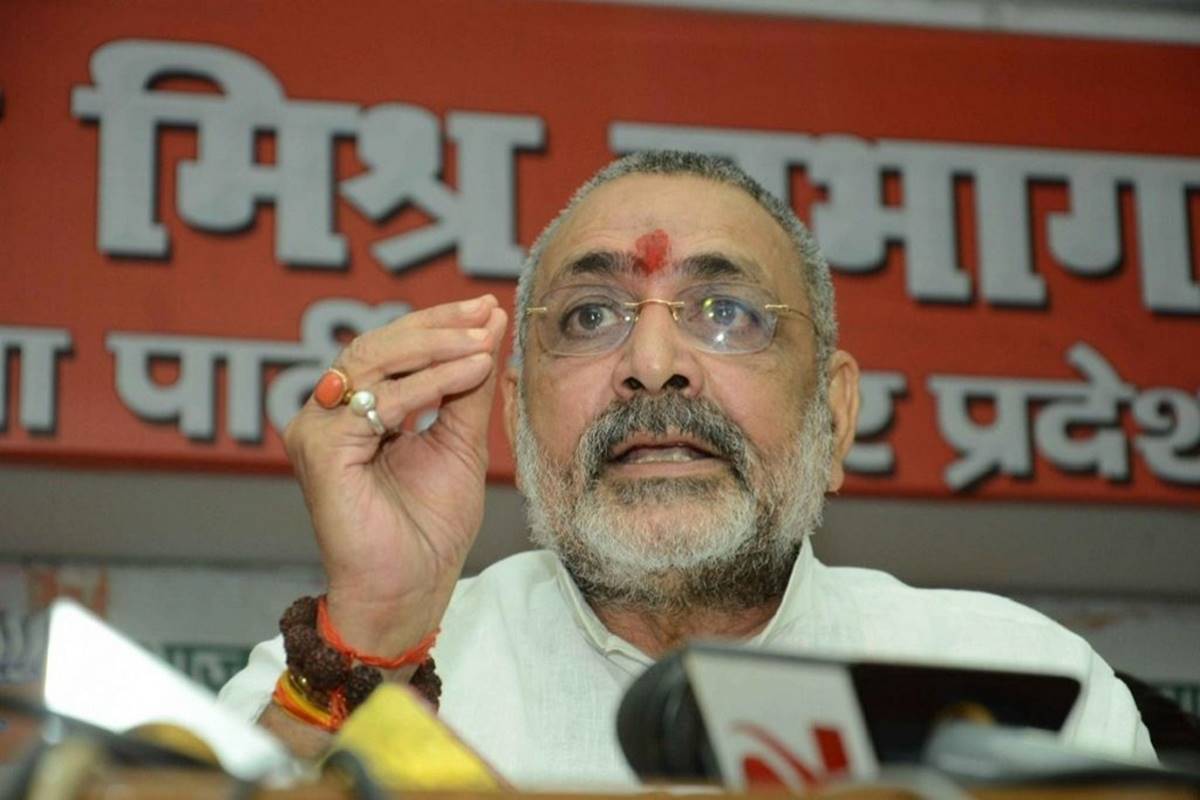Union Minister for Rural Development and the BJP MP Giriraj Singh has written a letter to Bihar Chief Minister Nitish Kumar demanding a ban on halal certified products in the state like in Uttar Pradesh.
The BJP MP said if the practice does not stop, then Bihar will turn into an “Islamic state”.
Advertisement
“Islamisation of the Indian market is taking place here in the name of Halal certification. It is like Sanatan where mantras are used for any purpose, Halal is the same phenomenon that comes under Quran and Sharia laws and the Congress party is protecting it.
“All gangs (political parties) of INDIA alliance are trying to finish Sanatan Dharma to achieve their vote bank politics. If we go to any market, we find Halal certified products. It is a kind of jaziya tax. It is an Islamization of the market and Bihar,” Singh said.
The Union minister further alleged that “they are trying to implement Sharia law in Bihar and the Chief Minister should take immediate action on it”. “Such a practice would divide the society. Nitish Kumar should stop it,” he added.
The minister also noted that halal certificated products are used in the manufacturing of medicines, edible oils, and many other things.
He further said that the market size of such products in India is $2 trillion.
Recently, the Uttar Pradesh government has banned products with a Halal tag.
Production, storage, distribution and sale of food products with the Halal certification has been forbidden with immediate effect, said the state government in a statement late on Saturday evening.
Products manufactured for export, however, will not be subject to the restrictions.
“Strict legal measures will be implemented against any individual or firm engaged in the production, storage, distribution, buying and selling of Halal-certified medicines, medical devices and cosmetics within Uttar Pradesh,” an official order said.
Halal certification of food products is a parallel system which creates confusion regarding the quality of food items and is not tenable under Section 89 of the Food Law Food Safety and Standards Act, the order said.
“The right to decide the quality of food items lies only with the authorities and institutions given in Section 29 of the said Act, who check the relevant standards as per the provisions of the Act,” it added.
It said that certain medicines, medical devices and cosmetic products are reported to feature the Halal certificate on their packaging or labelling when there are “no provisions for marking Halal certification on labels in the government rules related to drugs, medical devices, and cosmetics”, nor is there any mention of Halal certification in the Drugs and Cosmetics Act, 1940, and its related rules.
The move comes after a police case was filed against a company and a few other organisations for allegedly “exploiting people’s religious sentiments” to boost sales by providing “forged” halal certificates.











